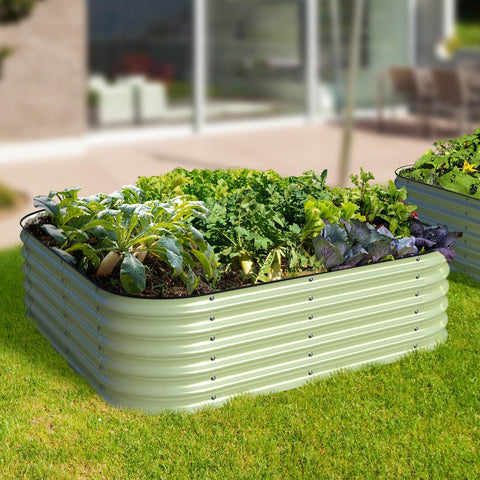The Wonderful Uses of Kitchen Condiments in Garden Beds
The garden is a place where people connect intimately with nature, providing a beautiful and serene space for us to enjoy. In the process of creating an ideal garden, we often employ various tools and methods to promote plant growth and maintain the garden's health. Among these methods, kitchen condiments play a crucial role. They not only provide essential nutrients for plants but also serve as natural insect repellents and soil amendments. In this article, we will explore the wonderful uses of kitchen condiments in garden beds, helping you create a vibrant and thriving garden.
First and foremost, let's delve into the positive impact of kitchen condiments on plant growth. Many kitchen condiments such as coffee grounds, tea leaves, and eggshells are rich in nutrients that plants require, such as nitrogen, phosphorus, and potassium. Adding them to garden beds can supply the necessary nutrients for plants, promoting growth and flowering. Coffee grounds can enhance soil acidity and improve soil structure, making them particularly suitable for acid-loving plants like azaleas and blueberries. Tea leaves, rich in nitrogen, can stimulate leaf growth and are particularly beneficial for vegetables and lawns. Eggshells provide plants with calcium, helping to prevent nutrient deficiencies and diseases.
Furthermore, kitchen condiments can be utilized as natural insect repellents, protecting the garden from pest infestations. Many kitchen condiments such as chili powder, garlic, and onions possess spicy or pungent properties that can repel or deter common garden pests. Sprinkling chili powder in garden beds can prevent aphids and other chewing insects from damaging the plants. Garlic and onions emit stimulating odors that can deter many flying insects such as mosquitoes and moths. Chopping or crushing them and mixing with water to create a spray can create a protective barrier when applied to plants.
In addition to providing nutrients and pest control, kitchen condiments can also improve the quality of garden bed soil. Some kitchen condiments, like coffee grounds and tea leaves, have good water retention and ventilation properties, which can enhance soil structure. Mixing them into the soil can increase organic matter content, improve moisture retention, and enhance soil aeration, benefiting the growth and development of plant roots. Furthermore, certain kitchen condiments, such as vinegar and lemon juice, have acidic properties that can neutralize alkaline soil, making it more suitable for acid-loving plants.
Apart from the aforementioned kitchen condiments, there are many other spices and condiments that can contribute to garden beds. For instance, wood chips can serve as mulch, helping to maintain soil moisture and temperature while suppressing weed growth. Seaweed powder can provide plants with essential trace elements like zinc and iron, promoting healthy growth. Sugar can attract beneficial microorganisms such as earthworms and soil bacteria, aiding in organic matter decomposition and improving soil structure.
In conclusion, kitchen condiments offer numerous remarkable uses in garden beds. They not only provide nutrients to plants, promoting growth, but also serve as natural insect repellents and soil amendments. Using kitchen condiments to create a garden is not only eco-friendly and healthy but can also save costs. However, it is important to note that different plants may respond differently to various kitchen condiments, so it is advisable to conduct some research before use to ensure proper application and avoid potential negative impacts. May this article provide you with useful information and inspiration to create a vibrant and flourishing garden.
Happy gardening!


